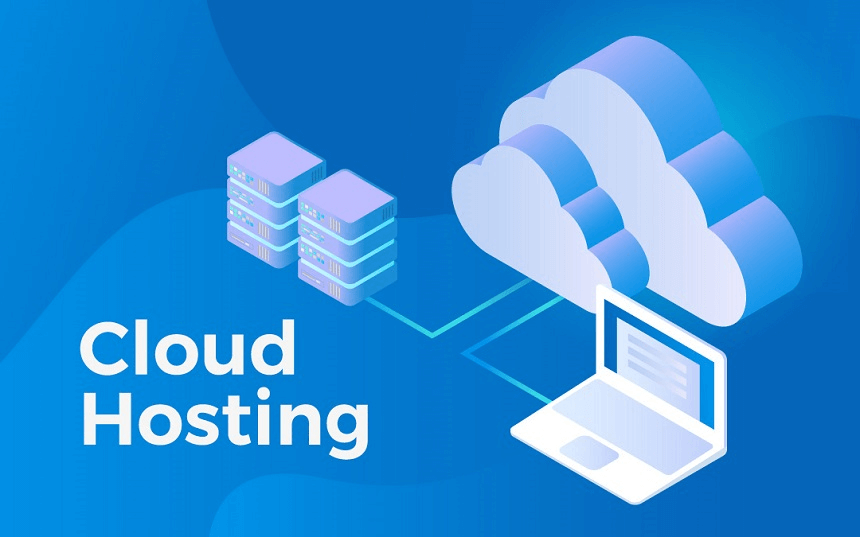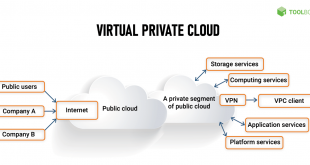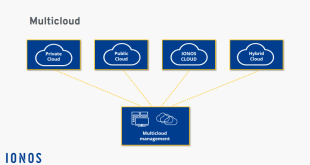As cloud hosting services take center stage, this comprehensive guide invites you into a world of unparalleled flexibility, scalability, and reliability. Delve into the intricacies of cloud hosting, empowering you with the knowledge to make informed decisions for your digital presence.
From understanding the fundamental concepts to exploring the latest innovations, this discourse will provide a thorough understanding of cloud hosting services, ensuring you stay ahead in the ever-evolving landscape of web hosting.
Introduction to Cloud Hosting Services
Cloud hosting is a type of web hosting that utilizes multiple servers connected through a network to host websites and applications. Unlike traditional hosting, where a website or application is hosted on a single physical server, cloud hosting distributes the workload across multiple servers, providing increased reliability, scalability, and cost-effectiveness.
Cloud hosting offers several advantages over traditional hosting. First, it provides greater reliability because if one server fails, the website or application can still be accessed from another server. Second, it offers scalability, allowing users to easily increase or decrease the amount of resources allocated to their website or application as needed.
Third, it is often more cost-effective than traditional hosting, as users only pay for the resources they use.
Cloud Hosting Models
There are three main types of cloud hosting models: Infrastructure as a Service (IaaS), Platform as a Service (PaaS), and Software as a Service (SaaS).
IaaSprovides users with access to the underlying infrastructure, including servers, storage, and networking. This gives users the most control over their environment, but it also requires them to manage the infrastructure themselves.
PaaSprovides users with a platform on which to develop and deploy applications. This includes the underlying infrastructure, as well as tools and services for developing, testing, and deploying applications. PaaS is a good option for users who want to focus on developing their applications without having to worry about managing the infrastructure.
SaaSprovides users with access to software applications that are hosted and managed by the cloud provider. This is the most hands-off option for users, as they do not need to manage the infrastructure or the software itself. SaaS is a good option for users who need to access software applications without having to invest in their own infrastructure.
Advantages and Disadvantages of Cloud Hosting
Cloud hosting offers several advantages over traditional hosting, including:
- Increased reliability
- Scalability
- Cost-effectiveness
- Flexibility
- Security
However, there are also some disadvantages to cloud hosting, including:
- Can be more complex to manage than traditional hosting
- May not be suitable for all applications
- Can be more expensive than traditional hosting for some users
Overall, cloud hosting is a good option for businesses that need a reliable, scalable, and cost-effective hosting solution.
Types of Cloud Hosting Services
Cloud hosting services provide a wide range of options to meet the diverse needs of businesses and individuals. Each type offers unique features, benefits, and limitations, making it essential to understand the differences to choose the most suitable solution.
Shared Hosting
Shared hosting is an entry-level cloud hosting service where multiple websites share the same server resources. It is a cost-effective option for small websites with low traffic and limited resource requirements.
- Benefits:Low cost, ease of use, suitable for small websites.
- Limitations:Limited resources, performance can be affected by other websites on the server.
VPS Hosting
Virtual Private Server (VPS) hosting offers a dedicated virtual environment within a shared server. It provides more control and resources than shared hosting, making it suitable for growing websites with moderate traffic.
- Benefits:Dedicated resources, improved performance, more control over the server.
- Limitations:Higher cost than shared hosting, still shares some resources with other VPSs.
Dedicated Hosting
Dedicated hosting provides exclusive use of a physical server, offering the highest level of control and performance. It is ideal for large websites with high traffic and mission-critical applications.
- Benefits:Dedicated resources, maximum performance, full control over the server.
- Limitations:Higher cost, requires technical expertise to manage.
Cloud Hosting
Cloud hosting leverages multiple interconnected servers to provide scalable and flexible hosting solutions. It offers on-demand resource allocation, allowing businesses to scale their infrastructure as needed.
- Benefits:Scalability, flexibility, cost-effectiveness, high availability.
- Limitations:Can be more complex to manage than traditional hosting.
Features and Benefits of Cloud Hosting Services

Cloud hosting services provide a range of features and benefits that make them an attractive option for businesses and individuals alike. These include scalability, reliability, security, and cost-effectiveness.
One of the key features of cloud hosting is its scalability. Cloud hosting providers allow users to easily scale their resources up or down as needed. This can be particularly beneficial for businesses that experience fluctuations in traffic or that need to quickly add or remove capacity.
Reliability
Cloud hosting providers also take a number of measures to ensure high uptime and data redundancy. This includes using multiple data centers, employing redundant hardware, and implementing robust backup and recovery systems. As a result, cloud hosting services are typically very reliable and can provide businesses with peace of mind.
Security
Cloud hosting providers also implement a variety of security features and protocols to protect user data. These include firewalls, intrusion detection systems, and access control lists. In addition, cloud hosting providers typically adhere to industry-standard security certifications, such as ISO 27001.
Cost-effectiveness
Cloud hosting can also be a cost-effective solution for businesses. Cloud hosting providers typically offer a variety of pricing models, including pay-as-you-go and monthly subscriptions. This allows businesses to only pay for the resources they use, which can lead to significant cost savings.
Choosing the Right Cloud Hosting Provider
Selecting the right cloud hosting provider is crucial for the success of your online venture. Here are some factors to consider when making your decision:
Reputation and Reliability
Choose a provider with a strong reputation for delivering reliable and secure services. Look for providers with positive customer reviews and industry recognition. A track record of uptime, data security, and customer support is essential.
Pricing and Support
Consider the pricing models offered by different providers and ensure they align with your budget. Evaluate the level of support provided, including 24/7 availability, response times, and the availability of dedicated support engineers.
Features and Capabilities
Identify the specific features and capabilities you require for your website or application. Consider factors such as storage space, bandwidth, database support, and application compatibility. Choose a provider that offers the features you need to meet your current and future requirements.
Scalability and Performance
Consider the scalability and performance requirements of your website or application. Choose a provider that can accommodate your growth and provide consistent performance under varying loads. Look for providers with robust infrastructure and a proven track record of handling high traffic volumes.
Case Studies and Examples of Cloud Hosting Services
Cloud hosting services have revolutionized the way businesses operate and manage their IT infrastructure. Numerous businesses have successfully leveraged cloud hosting to achieve significant benefits, including cost savings, scalability, and improved performance.
Here are some notable case studies and examples:
Dropbox
Dropbox, a cloud-based file hosting service, has experienced tremendous growth since its inception. By leveraging cloud hosting, Dropbox has been able to scale its operations rapidly to meet the growing demand for its services. The company has also realized significant cost savings by eliminating the need for on-premises hardware and maintenance.
Netflix
Netflix, a leading streaming service, relies heavily on cloud hosting to deliver its content to millions of users worldwide. Cloud hosting has enabled Netflix to provide a seamless and reliable streaming experience, even during peak usage periods. The company has also been able to quickly expand its services to new regions, thanks to the scalability of cloud hosting.
Airbnb
Airbnb, a peer-to-peer accommodation rental service, has successfully utilized cloud hosting to manage its complex booking system and handle the vast amount of data generated by its users. Cloud hosting has allowed Airbnb to scale its operations rapidly to meet the growing demand for its services and provide a user-friendly experience.
Emerging Trends in Cloud Hosting Services

The cloud hosting industry is constantly evolving, with new trends and innovations emerging all the time. These trends are shaping the way that businesses use cloud hosting services, and they are expected to continue to have a major impact in the years to come.
Some of the most important emerging trends in cloud hosting services include:
Multi-cloud strategies, Cloud hosting services
Multi-cloud strategies involve using multiple cloud providers to host different applications or workloads. This can provide several benefits, including increased reliability, flexibility, and cost savings.
However, multi-cloud strategies can also be challenging to implement and manage. Businesses need to carefully consider their needs and objectives before adopting a multi-cloud strategy.
Serverless computing
Serverless computing is a cloud computing model in which the cloud provider manages the servers and infrastructure. This allows businesses to focus on developing and deploying their applications without worrying about the underlying infrastructure.
Serverless computing can provide several benefits, including reduced costs, increased scalability, and improved developer productivity.
Edge computing
Edge computing is a cloud computing model in which data is processed and stored at the edge of the network, closer to the end user. This can provide several benefits, including reduced latency, improved performance, and increased security.
Edge computing is still a relatively new technology, but it is expected to have a major impact on cloud hosting services in the years to come.
Outcome Summary
In conclusion, cloud hosting services have emerged as a transformative force in the realm of web hosting, offering a multitude of benefits that traditional hosting solutions simply cannot match. By embracing the power of cloud computing, businesses and individuals alike can unlock unprecedented levels of scalability, reliability, and cost-effectiveness, propelling their online endeavors to new heights of success.
 Bussines News Daily
Bussines News Daily



